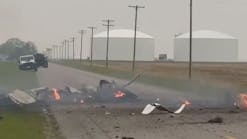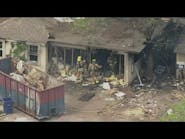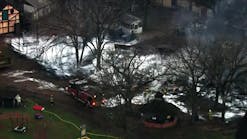Fire Protection Engineering as defined by the Society of Fire Protection Engineers (SFPE) is the application of science and engineering principles to protect people and their environment from the destructive fire and includes: analysis of fire hazards; mitigation of fire damage by proper design, construction, arrangement, and use of buildings, materials, structures, industrial processes, and transportation systems; the design, installation and maintenance of fire detection and suppression and communication systems; and post-fire investigation and analysis.
Dennis Nolan, Encyclopedia of Fire Protection, defines Fire Protection Engineering is the discipline of engineering that applies scientific and technical principles to safeguard life, property, loss of income, and threat to the environment from the effects of fires, explosions, and related hazards. It is associated with the design and layout of equipment, processes and supporting systems. It is concerned with fire prevention, control, suppression, and extinguishment and provides for consideration of functional, operational, economic, aesthetic, and regulatory requirements.
To summarize these definitions, Fire Protection Engineering is the practice of applying chemistry, physics, and engineering principles from mechanical, electrical, chemical, and civil engineering with additional education, training, and knowledge of fire dynamics concerned with the protection of life, property and the environment in the most economical and practical application.
Now that we have defined Fire Protection Engineering, the individual who performs these tasks is a Fire Protection Engineer (FPE). Through education, training, and experience, this engineer: (1) is familiar with the dynamics and characteristics of fire and its products of combustion; (2) recognizes how fires originate, spread through structures, and can be detected, controlled, and/or suppressed; and (3) is capable of predicting the behaviors of various materials, structures, and processes to protect life, property and the environment.
To pursue a degree in FPE, opportunities are available throughout the U.S. at various universities and institutions. The following schools offer both a Bachelor and Masters of Science Degrees and are accredited by the Technology Accreditation Commission of the Accreditation Board for Engineering and Technology (TAC/ABET):
Oklahoma State University, offers a Bachelor of Science Degree and is accredited by the Technology Accreditation Commission of the Accreditation Board for Engineering and Technology (TAC/ABET).
Additionally, some schools offer choices in the fire science field besides Fire Protection Engineering Fire, such as Arson and Explosion Investigation (B.S.), Fire Protection Administration (B.S. /M.S.), or Occupational and Industrial Safety Engineering (B.S.):
After graduation, FPE's are hired into a variety of fields such as large municipal fire departments, consulting and engineering firms, insurance companies, fire equipment manufacturers, and even the federal government.
FPE's perform a wide variety of services and functions from: reviewing engineering and construction drawings, conducting hydraulic analysis on sprinkler and fire water systems, researching the behavior of fire under certain conditions, and visiting industrial facilities such as refineries and manufacturing plants to inspect and provide recommendations to ensure proper fire protection is provided.
An FPE's job is very challenging and is becoming even more critical in the wake of the terrorists attacks on September 11, 2001. FPE's, along with other engineering disciplines, are forging the way not only for newer and safer designs, but for other advances in fire protection that will ultimately save lives.
For more information about Fire Protection Engineering or how to become a Fire Protection Engineer, please visit some of the web sites listed above or try some of these:
- Society of Fire Protection Engineers
- National Fire Protection Association
- Institution of Fire Engineers
- American Fire Sprinkler Association
- National Fire Sprinkler Association
- National Council of Examiners for Engineering and Surveying
- National Society of Professional Engineers
- National Institute for Standards and Technology
- Rolf Jensen and Associates
- Hughes and Associates
- Gage-Babcock and Associates
- Factory Mutual Global







